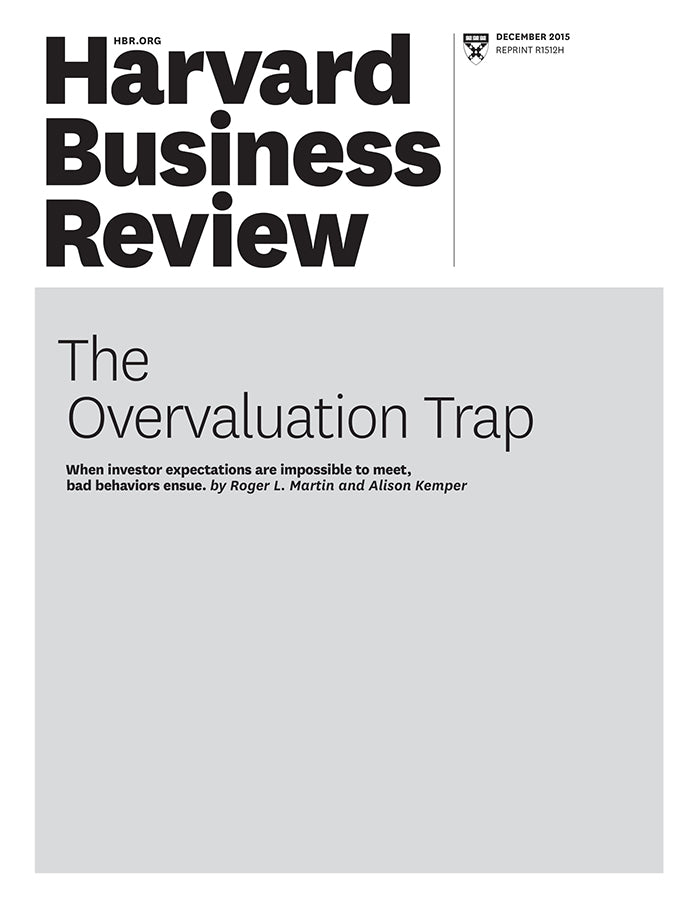The Overvaluation Trap
受取状況を読み込めませんでした
In 2007, Chuck Prince, then the CEO of Citigroup, made a notorious comment about the subprime mortgage market: "As long as the music's playing, you've got to get up and dance. We're still dancing." Soon after, the financial system crashed, and that remark came to be seen as a cavalier justification for excessive risk taking by the bank. But authors Martin and Kemper raise another possibility: Prince may have been painted into a corner, because Citigroup's stock was indefensibly overvalued. The only way the bank could earn the unrealistically high returns shareholders expected was through ever more dangerous activities. The overvaluation trap was first identified by Michael Jensen in a 2005 article examining the dot-com bubble. He noted that it often affects entire sectors and that in response to it executives tend to adopt two strategies: investing in hot, hyped technologies (as Global Crossing did with fiber-optic cable) and glamorous acquisitions (Nortel's downfall). And when investment opportunities start to dry up, firms may turn to financial manipulation (think WorldCom) to prop up their overpriced equity. Martin and Kemper point out that today companies in the pharmaceutical and oil sectors are caught in this same trap. Their market caps are spectacularly high. But massive spending on R&D is not producing more new drugs, and ever greater investment in oil reserve exploration is only exacerbating the glut of supply. The dance may be ending for both industries, and their executives need to figure out new and more-realistic narratives for value creation.
【書誌情報】
ページ数:9ページ
サイズ:A4
商品番号:HBSP-R1512H
発行日:2015/12/1
登録日:2015/12/9


